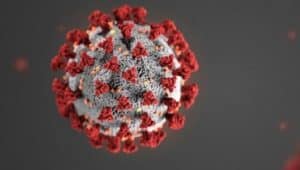
Racial minority groups are not adequately represented in COVID-19 clinical studies, research argues
pharmafile | August 12, 2020 | News story | Research and Development | COVID-19, Gilead, pharma, remdesivir
New research has warned that minority groups and people of colour are underrepresented in current trials for COVID-19 therapies, despite the disproportionately higher rates of infection, hospitalisation and death faced by these groups.
Experts from the University of Georgia, University of Colorado and Phoebe Putney Memorial Hospital came together to analyse data from some of the leading COVID-19 clinical trials. The researchers looked specifically at the Adaptive COVID-19 Treatment Trial investigating the efficacy of Gilead’s antiviral drug remdesivir in the treatment of patients with COVID-19, a study nationally funded and supported by the National Institute of Allergy and Infectious Diseases (NIAID), where Black Americans made up 20% of the participant sample while Latinx and Native Americans accounted for around 23%.
However, in Gilead’s own trial of the drug, Black participants only made up around 10% of participants, while Latinx and Native Americans were only represented in 1% of participants.
While there is always a concern around proportional representation of minority groups in clinical trials in order to determine that a therapy is safe and effective across a range of demographics once it hits the wider market, there is a deeper implication within COVID-19 given the growing data on the more severe symptoms and higher mortality risk posed by the virus to BAME communities.
Lead author Daniel Chastain, Clinical Assistant Professor of Pharmacy at University of Georgia’s Albany campus, remarked on the findings: “The overwhelming majority of the patients in both of those large clinical trials were Caucasians. Knowing that African Americans die at a higher rate than Caucasians, can I say that this medication will work in them as well? Yes, they enrolled a bunch of patients and yes they got these data out as fast as possible, but can we use this information to inform treatments in all patients?
“I think the hardest question to address is what’s the harm?” he continued. “I have no idea what the potential long-term complications of these treatments may be. We don’t know. That’s what makes me the most nervous going forward. We’re so prone and we’re taught that you always have to ‘do something,’ but sometimes doing something is the worst thing to do in that scenario.”
Matt Fellows
Related Content

Gilead’s HIV treatment meets primary trial endpoint
Gilead has announced positive topline results from its phase 3 ARTISTRY-2 trial, which evaluated a …

Gilead announces first shipments of HIV prevention drug to Eswatini and Zambia
Gilead has announced the first shipments of its HIV prevention drug lenacapavir to Eswatini and …

COVID-19 vaccine eligibility creates challenges for UK pharmacies
Pharmacists across England have reported widespread confusion among patients attempting to book COVID-19 vaccination appointments …






